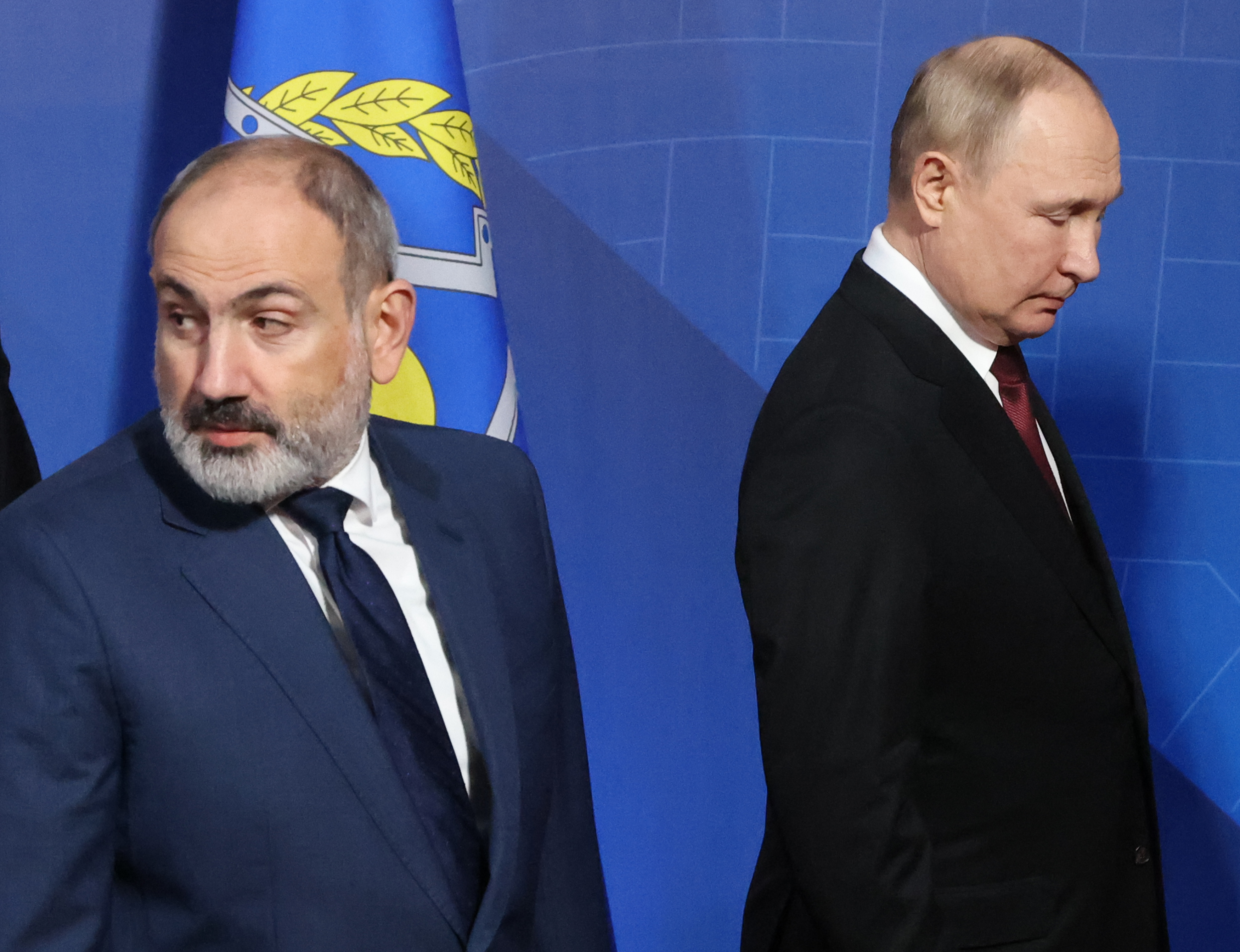Uncommon Knowledge
Newsweek is committed to challenging conventional wisdom and finding connections in the search for common ground.

Armenia has rejected reports that its prime minister Nikol Pashinyan said his country will withdraw from the Collective Security Treaty Organization (CSTO), adding to uncertainty about Yerevan’s future in the security alliance considered to be Russia’s answer to NATO.
“Let’s get out. We will decide when,” Pashinyan told lawmakers in parliament on Wednesday following a question by an opposition MP, according to the Russian newspaper Kommersant and other Russian state media outlets.
However, the news agency Tass later reported that Armenian Foreign Minister Ararat Mirzoyan told the Armenian parliament that the country’s authorities will decide when to withdraw from the Moscow-led organization.
“The meeting is recorded, you can check who said what,” Mirzoyan said, according to Tass. “The Prime Minister of Armenia did not say that we are withdrawing from the CSTO, the Prime Minister of Armenia said that we will decide when to withdraw, but we will not go back.”
Newsweek has contacted the Armenian and Russian foreign ministries for comment.
A military alliance formed in 2022, the CSTO also consists of post-Soviet countries Belarus, Kazakhstan, Kyrgyzstan and Tajikistan. An act of aggression against one signatory is considered an attack on all members, akin to NATO’s Article 5, but there has been a question mark over Armenia’s continued membership.
Pashinyan announced a freeze in his country’s participation in the organization in February following frustration in Yerevan at a perceived lack of support from Putin in its dispute with Azerbaijan over the contested region of Nagorno-Karabakh.
Pashinyan had said five months ago the pact had failed Armenia, which could no longer rely on Moscow for its defense, telling France 24 television that the CSTO “has not fulfilled its objectives as far as Armenia is concerned, particularly in 2021 and 2022.”
Armenia relies heavily on Russia and the countries have close economic and political ties. However, there has been growing discontent in Yerevan with Moscow over the last couple of years and one of the benefits of CSTO membership—discounts for Russian weapons—dried up following Putin’s full-scale invasion of Ukraine.
Armenia had raised concerns about Russia’s failure to intervene when Azerbaijan launched an offensive in the breakaway Nagorno-Karabakh region, which was home to a majority ethnic Armenian population but recognized internationally as part of Azerbaijan.
A victory by Azerbaijan was followed the Armenian population fleeing and the dissolution of what they called the Republic of Artsakh. Following the offensive, Azerbaijan was accused of ethnic cleansing, which Baku rejected.
Update 06/12/24, 12:21 p.m. ET: This article has been updated with further information and the headline has been changed to reflect comments made by Armenian Foreign Minister Ararat Mirzoyan.
Newsweek is committed to challenging conventional wisdom and finding connections in the search for common ground.
Newsweek is committed to challenging conventional wisdom and finding connections in the search for common ground.